December 04, 2018 | Nora Samaranayake
Research Suggests that Bacterial Infections May Contribute Far More to Cancers Than Previously Thought
The Institute of Human Virology (IHV) at the University of Maryland School of Medicine (UMSOM) announced today the discovery that DnaK, a protein of the bacterium mycoplasma, interferes with the mycoplasma-infected cell’s ability to respond to and repair DNA damage, a known origin of cancer.
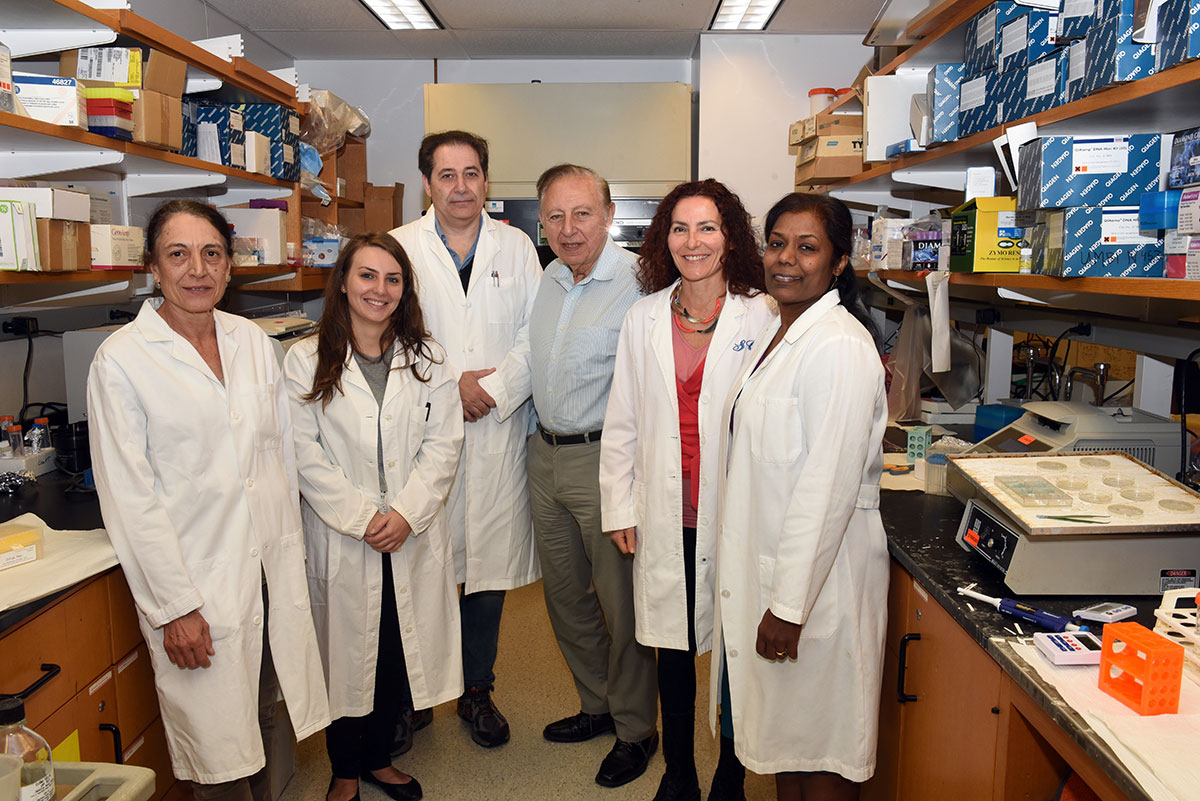
Members of this research team include those pictured here: Fiorenza Cocchi, MD, Francesca Benedetti, PhD, Davide Zella, PhD, Robert Gallo, MD, Sabrina Curreli, PhD, and Selvi Krishnan, PhD
Little or no mycoplasma DnaK DNA sequences were found associated with the tumor, which was fully developed, suggesting a hit-and-run or hide mechanism of transformation, indicating that the damage is done early, but the protein may not be needed once the cancer cells are formed.
The study was published in the Proceedings of the National Academy of Sciences and suggests that bacterial infections may contribute to far more cancers than previously thought. The announcement was made by Robert Gallo, MD, The Homer & Martha Gudelsky Distinguished Professor in Medicine and Co-Founder and Director, Institute of Human Virology, University of Maryland School of Medicine and Davide Zella, PhD, Assistant Professor of Biochemistry and Molecular Biology, Institute of Human Virology, University of Maryland School of Medicine. Drs. Gallo and Zella collaborated with Hervé Tettelin, PhD, Associate Professor of Microbiology and Immunology, Institute for Genome Sciences, University of Maryland School of Medicine.
“Currently, approximately 20% of cancers are thought to be caused by infection, most are known to be due to viruses,” said Dr. Gallo. who is also Co-Founder and Director of the Global Virus Network. “Mycoplasmas are a family of bacteria that are associated with cancers, especially in people with HIV. Our work provides an explanation for how a bacterial infection can trigger a series of events that lead to cancer. Of particular importance, the infection did not need to persist and the protein did not need to be continuously present in all cancer cells. The study also provides a mechanism for how some bacterial infections can interfere with specific cancer drugs.”
Researchers utilized immune-compromised mice as a model for analyzing the effect of mycoplasma infection on the development of lymphoma. They compared how quickly non-infected immune-compromised mice developed lymphoma compared to mycoplasma-infected immune-compromised mice. The mice were infected with a strain of mycoplasma from an HIV patient. The researchers found that mycoplasma infection caused the mice to develop lymphoma earlier in life than non-infected immune-compromised mice and that some, but not all, of the cancer cells had bacterial DNA. Finding only a small amount of bacterial DNA in the cancer cells suggested that the infection did not have to persist to trigger cancer.
“We focused on a protein called DnaK, which is part of a family of proteins that function as a ‘chaperone’ for other proteins protecting them from damage or helping them to fold,” said Dr. Zella. “However, in this case, DnaK reduces the activity of important cellular proteins involved in DNA repair and anti-cancer-activities, such as p53. Thus, cells infected with mycoplasma would not be able to properly repair damaged DNA, thus, potentially increasing the risk for cancer development.”
The scientists noted that the bacteria can release DnaK and the DnaK enters nearby uninfected cells. The study also demonstrates that by reducing p53, DnaK can also reduce the efficacy of anti-cancer drugs. Thus, mycoplasma infection could not only trigger events leading to the accumulation of DNA damage and oncogenesis in infected cells, but also trigger cancer-causing events in nearby uninfected cells that took up DnaK released from infected neighboring cells.
“We analyzed the amino acid sequences of DnaK from many bacteria and found that the DnaK proteins from bacteria associated with cancer grouped together were different DnaK sequences from bacteria that are not associated with cancer,” said Dr. Tettelin. “This raises the possibility that other bacteria have the same cancer-promoting ability.”
According to Dr. Gallo, “This hit-and-run, or hide, mechanism mediated by a protein common to many cancer-associated bacteria changes how we need to think about infection and at least some cancers. Furthermore, this provides a basis for understanding how infection can influence the effectiveness of some cancer treatments.”
“This is fascinating science with important implications,” said UMSOM Dean E. Albert Reece, MD, PhD, MBA, who is also the Executive Vice President for Medical Affairs, University of Maryland, and the John Z. and Akiko K. Bowers Distinguished Professor. “We are pleased to see a cross-collaboration between two disciplines here at the University of Maryland School of Medicine. Our Institute of Human Virology’s basic science laboratory research was aided by the School’s Institute of Genome Sciences’ sequencing expertise, bringing the research to full fruition.”
This research was partially funded by the Maryland Cigarette Restitution Fund (CRF) Program. Morgan State University also participated in this study.
About the Institute of Human Virology
Formed in 1996 as a partnership between the State of Maryland, the City of Baltimore, the University System of Maryland and the University of Maryland Medical System, IHV is an institute of the University of Maryland School of Medicine and is home to some of the most globally-recognized and world-renowned experts in all of virology. The IHV combines the disciplines of basic research, epidemiology and clinical research in a concerted effort to speed the discovery of diagnostics and therapeutics for a wide variety of chronic and deadly viral and immune disorders - most notably, HIV the virus that causes AIDS. For more information, www.ihv.org and follow us on Twitter @IHVmaryland.
About the University of Maryland School of Medicine
Now in its third century, the University of Maryland School of Medicine was chartered in 1807 as the first public medical school in the United States. It continues today as one of the fastest growing, top-tier biomedical research enterprises in the world -- with 43 academic departments, centers, institutes, and programs; and a faculty of more than 3,000 physicians, scientists, and allied health professionals, including members of the National Academy of Medicine and the National Academy of Sciences, and a distinguished recipient of the Albert E. Lasker Award in Medical Research. With an operating budget of more than $1 billion, the School of Medicine works closely in partnership with the University of Maryland Medical Center and Medical System to provide research-intensive, academic and clinically-based care for more than 1.2 million patients each year. The School has over 2,500 students, residents, and fellows, and more than $530 million in extramural funding, with most of its academic departments highly ranked among all medical schools in the nation in research funding. As one of the seven professional schools that make up the University of Maryland, Baltimore campus, the School of Medicine has a total workforce of nearly 7,000 individuals. The combined School and Medical System (“University of Maryland Medicine”) has an annual budget of nearly $6 billion and an economic impact more than $15 billion on the state and local community. The School of Medicine faculty, which ranks as the 8th highest among public medical schools in research productivity, is an innovator in translational medicine, with 600 active patents and 24 start-up companies. The School works locally, nationally, and globally, with research and treatment facilities in 36 countries around the world. Visit medschool.umaryland.edu/
Contact
Institute of Human Virology
Jennifer Gonzales
Public Relations & Communications Manager
jennifer.gonzales@ihv.umaryland.edu
Related stories
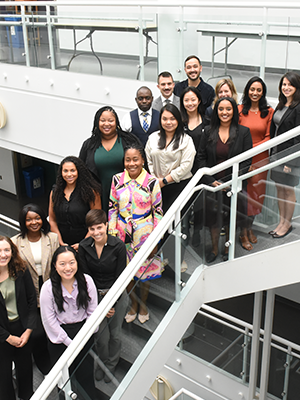
Friday, November 17, 2023
Major Funding of Partnership for HIV/AIDS Progress (PFAP) Award from the National Institute of Health (NIH) Office of AIDS Research to the Research Initiative on Infectious Disease and Subst
The Institute of Human Virology (IHV) at the University of Maryland School of Medicine (UMSOM) received an annual award for $3 million funded by the NIH Office of AIDS Research. The PFAP award is projected to total approximately $9 million over four years. Principal Investigators are Elana Rosenthal, MD and Sarah Kattakuzhy, MD, MPH.
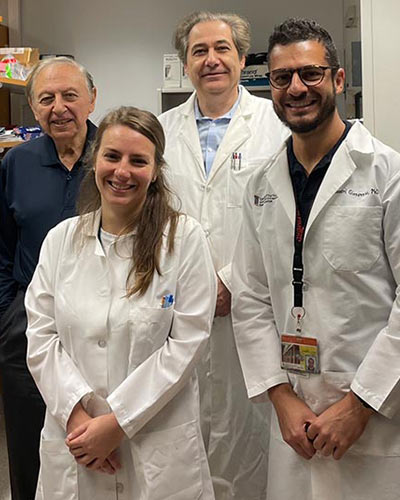
Monday, July 17, 2023
Researchers from the Institute of Human Virology Discover that a Bacterial Protein Causes Genomic Instability and Contributes to Reduced Fertility, and Birth Defects
A team of researchers from the University of Maryland School of Maryland’s (UMSOM) Institute of Human Virology (IHV), a Center of Excellence of the Global Virus Network (GVN), published new findings that emphasize the crucial role of the urinary and genital tract microbiota in adverse pregnancy outcomes and genomic instability that originate in the womb during fetal development.
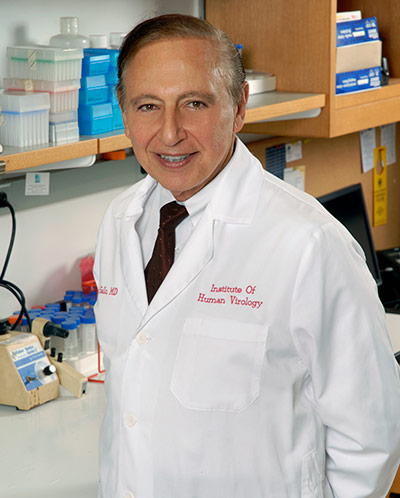
Tuesday, March 28, 2023
Two-Time Lasker Awardee and Internationally Acclaimed Virologist, Robert C. Gallo, MD, To Step Down as Director of UM School of Medicine’s Institute of Human Virology (IHV)
Robert C. Gallo, MD, one of the world’s leading virologists and cancer researchers, announced he has stepped down from his position as Director of the Institute of Human Virology (IHV) at the University of Maryland School of Medicine (UMSOM), effective March 24.

Monday, October 31, 2022
NCI Grants Awarded to IHV to Prevent Cancer and Improve Screening in Sub-Saharan Africa
Institute of Human Virology (IHV) researchers at the University of Maryland School of Medicine (UMSOM) have received two five-year awards from the National Institutes of Health’s National Cancer Institute (NCI) for a total of $7.5 million. One award aims to reduce the incidence of lung cancer and other cancers associated with using tobacco in Botswana. The other is focusing on improving screening and treatment of anal precancer in Nigeria. Both grants will make use of existing HIV treatment and prevention infrastructure in low- and middle-income countries to reach people living with HIV who are most at risk for these particular types of cancers.
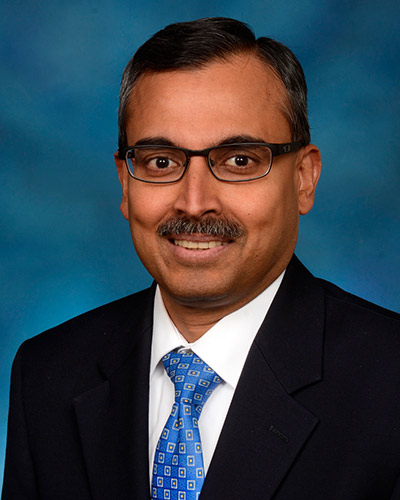
Wednesday, December 01, 2021
$6.5M Grant Awarded to Develop Treatment for Alcoholic Liver Disease-Associated Kidney Dysfunction
The Institute of Human Virology (IHV) at the University of Maryland School of Medicine (UMSOM) and MitoPower LLC (“MitoPower”) were awarded an SBIR (Small Business Innovation Research) grant of up to $6.5 million over five years from the National Institute on Alcohol Abuse and Alcoholism. The funds will support the development of MitoPower’s lead compound, MP-04, for the treatment of kidney dysfunction due to alcoholic liver disease, a condition known as alcoholic liver disease-associated hepatorenal syndrome (HRS). The IHV, a Center of Excellence member of the Global Virus Network (GVN), will conduct first-in-human single and multiple ascending dose studies to test the safety of the compound, followed by a Phase 1b study in patients.
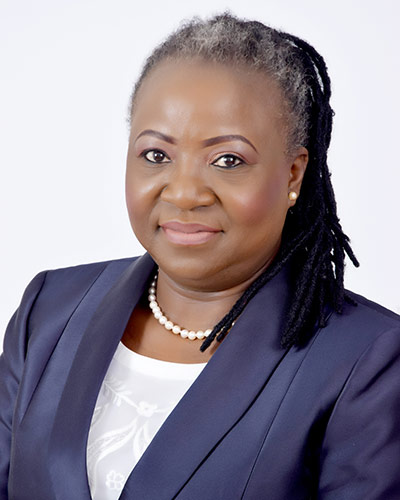
Thursday, November 04, 2021
University of Maryland School of Medicine Institute of Human Virology Researchers Receive $6.5M to Create African Big Data Hub Designed to Address Public Health and Pandemic Preparedness
Researchers at the University of Maryland School of Medicine (UMSOM)’s Institute of Human Virology (IHV), a Global Virus Network (GVN) Center of Excellence, have received $6.5 million from the U.S. National Institutes of Health (NIH) to streamline big data collection in Nigeria and South Africa in addressing public health needs of the COVID-19 and HIV pandemics.
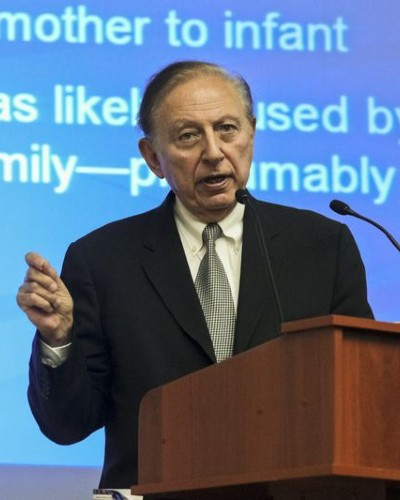
Friday, April 02, 2021
Baltimore Sun: Q&A with Dr. Robert Gallo: ‘The world has to be linked to fight a pandemic’
Robert Gallo, the eminent virologist best known as co-discoverer of the AIDS virus, says the world needs a system to confront viral disease that’s free of politics and primed to quickly warn nations about new threats as if “the bad Martians are coming.” The uneven and politicized response to the coronavirus pandemic, with a worldwide toll approaching 3 million, including 553,000 deaths in the United States, proves Gallo’s point.
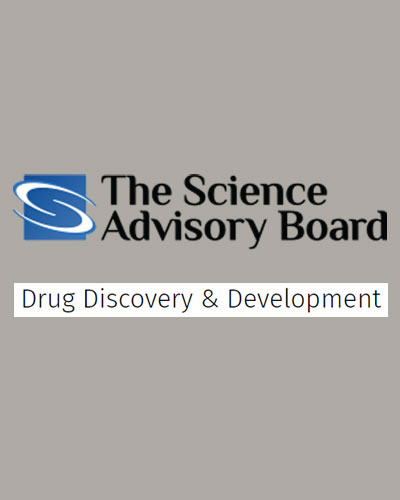
Thursday, February 18, 2021
The Science Advisory Board: The next generation of COVID-19 vaccines: Gallo on next steps
With emergency authorizations for several COVID-19 vaccines under our belt, the question remains if these vaccines will be enough to carry us through the end of the pandemic. Experts agree that there will likely need to be additional vaccines to achieve full recovery. In this two-part series, we discuss what a next-generation COVID-19 vaccine might look like, and which candidates are in the running for authorizations.
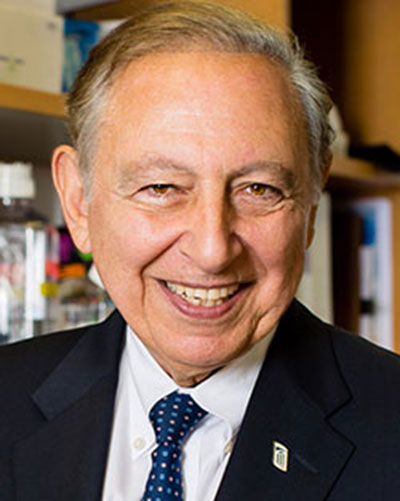
Friday, February 12, 2021
The Washington Post: Scientists said claims about China creating the coronavirus were misleading. They went viral anyway.
The spread of the unverified assertions by Chinese scholar Li-Meng Yan, widely dismissed as “flawed,” show how vulnerable scientific sites are to misuse and misunderstanding.

Friday, February 12, 2021
China CDC Weekly: Commentary by Dr. Robert C. Gallo
The Great Coronavirus Pandemic of 2019−2021: the Future and the Requirement for China-America Cooperation - Over the past century, the great pandemics and most epidemics (defined as virus presence and disease induction presenting more than the expected number of infections in a population) were caused by the sudden outbreak of an RNA virus such as the pandemics of influenza, polio, and HIV/AIDS and the epidemics of influenza, Ebola, Dengue, Zika, West Nile, severe acute respiratory syndrome (SARS), Middle East respiratory syndrome (MERS), and Chikungunya.
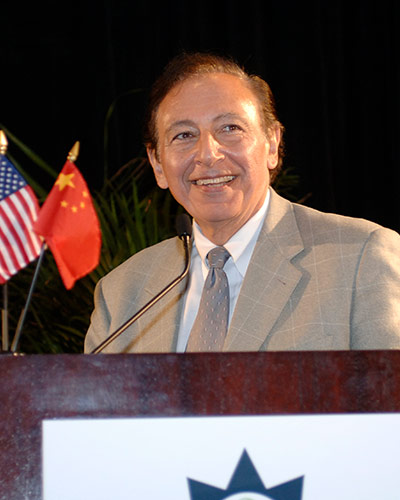
Monday, December 21, 2020
Robert Gallo of the UM School of Medicine Institute of Human Virology and Global Virus Network Awarded Top Life Sciences and Medicine Prize from China
Robert C. Gallo, MD, The Homer & Martha Gudelsky Distinguished Professor in Medicine, co-founder and director of the Institute Human Virology at the University of Maryland School of Medicine and co-founder and international scientific advisor of the Global Virus Network, was awarded the “VCANBIO Award for Biosciences and Medicine,” a significant and authoritative award in the life sciences and medicine field of China. The elite Prize is jointly presented by the University of Chinese Academy of Sciences and the VCANBIO CELL & GENE ENGINEERING CORP, LTD to push forward scientific research, technological innovation and continuous development in the life sciences and medicine field of China.
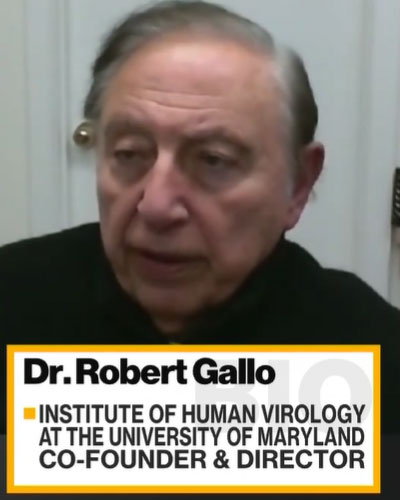
Friday, December 11, 2020
Bloomberg TV Asia: Dr. Robert Gallo on COVID-19 Vaccines
Dr. Robert Gallo, co-founder and international scientific advisor of the Global Virus Network and the co-founder and director of the Institute of Human Virology at the University of Maryland School of Medicine, discusses the rollout of the Covid-19 vaccines. The first Covid-19 vaccine expected to be deployed in the U.S. won the backing of a panel of government advisers, a step that will likely help clear the way for emergency authorization by the Food and Drug Administration. Gallo, who co-discovered HIV as the cause of AIDS in 1984, speaks with Haidi Stroud-Watts and Shery Ahn on "Bloomberg Daybreak: Australia." (Source: Bloomberg)
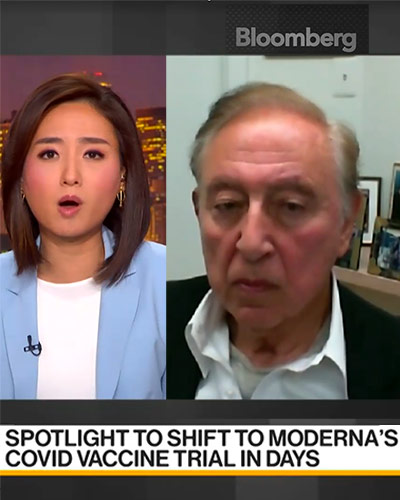
Wednesday, November 11, 2020
Dr. Robert Gallo on Bloomberg Asia on COVID Vaccine Prospects
Dr. Robert C. Gallo, The Homer & Martha Gudelsky Distinguished Professor in Medicine, co-founder and director of the Institute of Human Virology at the University of Maryland School of Medicine and co-founder and international scientific advisor of the Global Virus Network, discusses the timeline and safety of Covid-19 vaccine trials. He speaks with Shery Ahn and Haidi Stroud-Watts on "Bloomberg Daybreak: Asia".
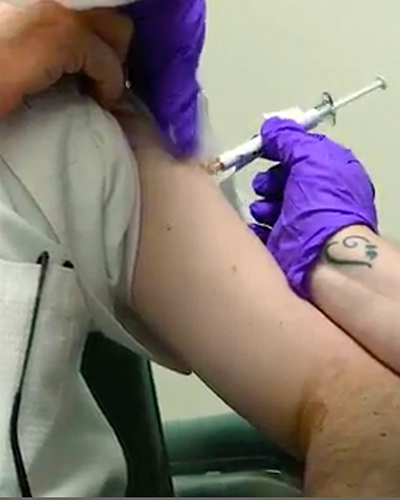
Sunday, November 01, 2020
The Scientist: How Some Vaccines Protect Against More than Their Targets
As researchers test existing vaccines for nonspecific protection against COVID-19, immunologists are working to understand how some inoculations protect against pathogens they weren’t designed to fend off.

Monday, October 12, 2020
WJLA (Washington, DC): How long can you spread coronavirus once infected? We found out.
Social distancing, hand hygiene and face masks can help curb the spread of the highly contagious coronavirus but if you do get sick, how long can you spread COVID to others? 7 On Your Side went looking for answers.
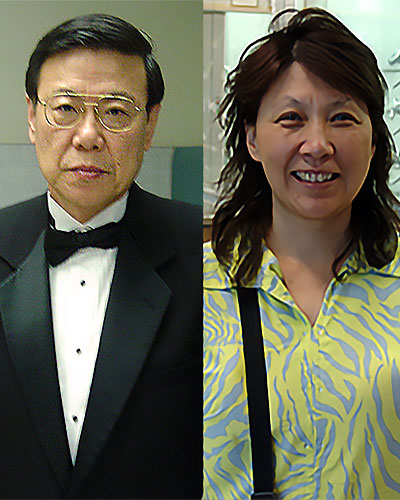
Monday, August 31, 2020
UM School of Medicine’s Institute of Human Virology Recruits Top HIV/AIDS Epidemiologist Shenghan Lai Along with Team of Researchers
Robert C. Gallo, MD, the Homer & Martha Gudelsky Distinguished Professor in Medicine, Co-founder and Director of the Institute of Human Virology (IHV) at the University of Maryland School of Medicine (UMSOM), and Man E. Charurat, PhD, MHS, Professor of Medicine, Director of the Division of Epidemiology & Prevention and CIHEB Global Director at the IHV, announced today that Shenghan Lai, MD, MPH and Hong Lai, PhD, MPH, in addition to three staff members, and two more to add, have joined the Institute of Human Virology. The faculty began their positions on April 1 with Professor and Associate Professor academic appointments in the UMSOM’s Department of Epidemiology & Public Health.
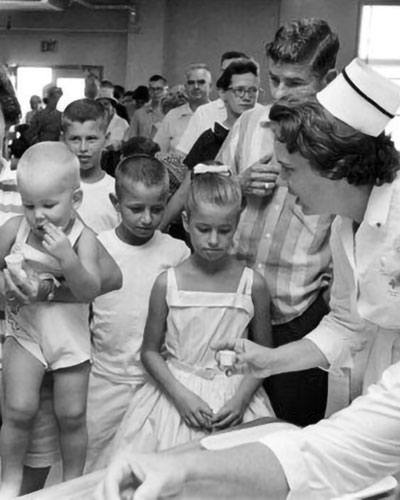
Friday, August 28, 2020
WYPR: Could Polio Vaccine Corral Covid-19?
A safe, effective vaccine against Covid-19 could resurrect jobs, send kids back to classrooms--change our lives. But how safe and effective? And how quickly can we have it? Dr. Robert Gallo, the AIDS-research pioneer now leading virus science at the Institute of Human Virology at the University of Maryland School of Medicine and the Global Virus Network, argues we could get much of the benefit by inoculating people with an old, very cheap drug -- the oral Polio vaccine developed seven decades ago. Gallo contends it would trigger our ‘innate immunity’-- the body’s emergency response when a threat shows up.
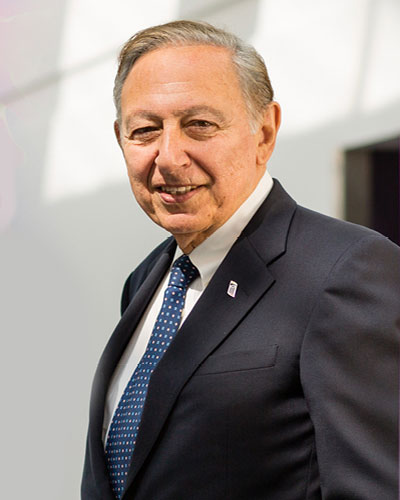
Monday, August 03, 2020
Eureka, Charles River Laboratories: Could the Oral Polio Vaccine be Used to Prevent COVID-19?
Virologist Robert Gallo, MD, has had a long and storied career in academic and government research. He is the Homer & Martha Gudelsky Distinguished Professor in Medicine, co-founder and director of the Institute Human Virology (IHV) at the University of Maryland School of Medicine and co-founder and international scientific adviser of the Global Virus Network. Despite his deep roots in HIV, Dr. Gallo’s current focus is, not surprisingly, COVID-19, which emerged in China last year and within four months morphed into a full-blown pandemic. As usual, Dr. Gallo’s research strategy has raised eyebrows. Unlike the antibody and RNA vaccines that are all the rage in COVID-19 science, Gallo is putting his energies behind repurposing the oral polio virus vaccine developed in the 1950s by Albert Sabin.

Friday, July 31, 2020
RollingStone-Useful Idiots: Dr. Robert Gallo on a COVID-19 Vaccine
Dr. Robert Gallo, director of the Institute for Human Virology at the University of Maryland School of Medicine, joins the show to give his take on the prospects for an effective COVID-19 vaccine. Gallo is skeptical of the approach many organizations are taking with antibody vaccines, citing the similarly low efficacy those treatments had with HIV due to the low durability of the antibodies. Dr. Gallo’s research is mainly related to Oral Polio Vaccine, which he thinks needs to be tested more in regard to innate immunity.
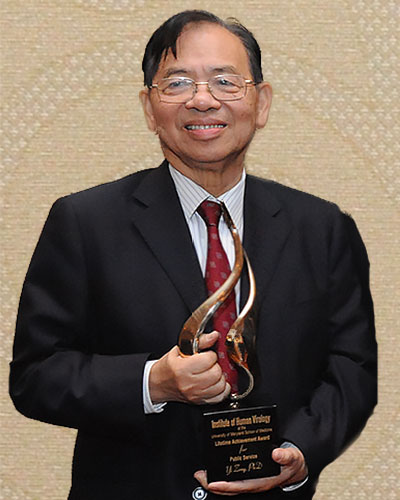
Friday, July 24, 2020
A Statement from the Leadership of the Institute of Human Virology and the Global Virus Network on the Passing of Renowned Chinese Virologist Yi Zeng
The IHV at the University of Maryland School of Medicine and the Global Virus Network (GVN), a coalition comprised of the world’s preeminent human and animal virologists from 55 Centers of Excellence and 10 Affiliates in 32 countries, collectively mourns the passing of Professor Yi Zeng, MD, Academician of the Chinese Academy of Sciences, former President of the Chinese Academy of the Preventive Medicine and former Dean of the College of Life Science and Bioengineering at Beijing University of Technology.
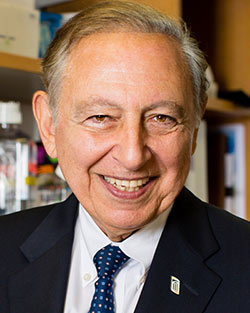
Monday, July 20, 2020
NPR: Early Oxford-AstraZeneca Coronavirus Vaccine Data 'Encouraging,' Scientists Say
Dr. Robert Gallo is quoted about an experimental vaccine candidate being developed by AstraZeneca and Oxford University to protect against COVID-19 that triggered an immune response against the coronavirus and appeared to be safe.

Tuesday, July 07, 2020
Courthouse News Service: Global Progress on Ending HIV/AIDS Derailed by Covid-19
A United Nations program aimed at eliminating HIV/AIDS released a report Monday showing that the global response to the epidemic has fallen far short of goals set for 2020, in large part due to the coronavirus pandemic.

Monday, July 06, 2020
Sputnik Radio: What If There Is No Vaccine for COVID-19?
On today's episode of Loud & Clear, Brian Becker and John Kiriakou are joined by Robert Gallo, MD, the Homer & Martha Gudelsky Distinguished Professor in Medicine, co-founder and director of the Institute Human Virology at the University of Maryland School of Medicine and co-founder and international scientific adviser of the Global Virus Network. What would you think if someone told you that we already have a vaccine that at least helps fight Covid-19? That may already be the case. Two American scientists, Dr. Robert Gallo and Dr. Konstantin Chumakov, are positing that decades-old live vaccines for things like polio and tuberculosis strengthen the immune system’s first line of defense a more general way to fight infection. And the history books show us that that sometimes translates into at least some cross-protection against completely different viruses.
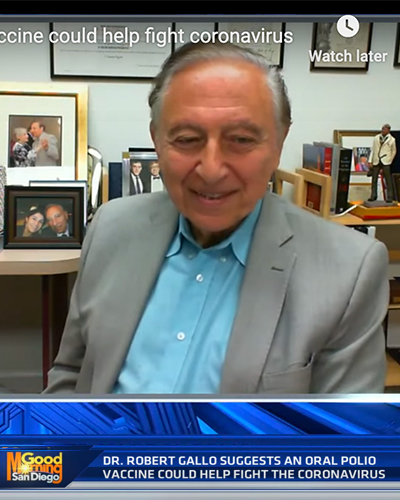
Friday, July 03, 2020
KUSI San Diego News: Dr. Robert Gallo suggests an oral polio vaccine could help fight coronavirus
Dr. Robert Gallo from the Institute of Human Virology at the University of Maryland School of Medicine and Global Virus Network wrote an op-ed in the Wall Street Journal earlier this week. The opinion piece stated that OPV, oral polio vaccine, could be a cheap and effective way to fight coronavirus. Dr. Gallo discussed his opinion piece on Good Morning San Diego.
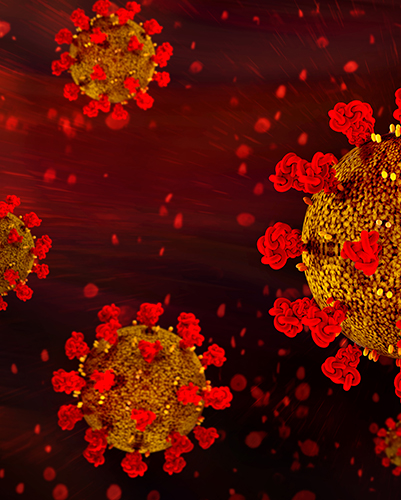
Thursday, July 02, 2020
13D Global Strategy & Research Report
COVID-19 outbreaks are multiplying and immunity may be short-lived. Could existing “live” vaccines, which stimulate innate immunity, outshine vaccines targeting the “spike” protein?

Thursday, June 25, 2020
The New York Times: Dr. Robert Gallo: The Case for a Stopgap Vaccine
In a letter to the editor to The New York Times entitled, "Dr. Robert Gallo: The Case for a Stopgap Vaccine," the noted virologist and head of the IHV says a polio vaccine may be an ideal solution until we find a Covid-specific vaccine.
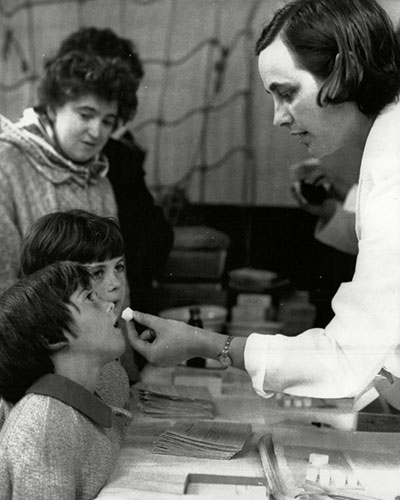
Wednesday, June 24, 2020
The New York Times: Decades-Old Soviet Studies Hint at Coronavirus Strategy
The New York Times: Decades-Old Soviet Studies Hint at Coronavirus Strategy: A married pair of virologists in Moscow tested a vaccine on their own children in the 1950s. Now, a side effect they found is sparking new hope for a defense against the coronavirus.

Friday, June 12, 2020
The Washington Post: We shouldn’t care who wins the vaccine ‘race’
Dr. Robert Gallo writes a Letter to the Editor to The Washington Post entitled, “We shouldn’t care who wins the vaccine ‘race’,” regarding their June 4 front-page article “Cold War echoes in race for vaccine,” about the “race” among nations, notably the United States, China, and Russia and other European nations for development of a vaccine against the novel coronavirus.
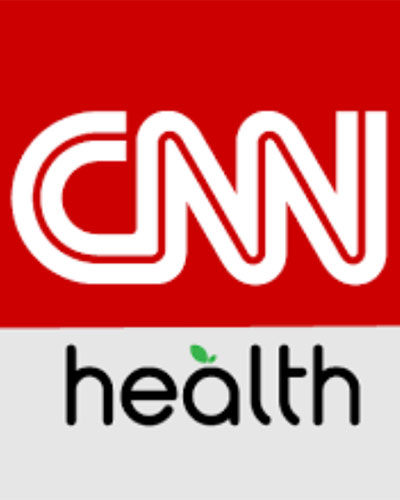
Friday, June 12, 2020
CNN Health: An Existing Polio Vaccine Could Help Protect Against Coronavirus, Top Experts Say
CNN: There is plenty of evidence that existing inoculations such as polio vaccines protect children against a wide range of infections and it's worth trying them out against the new coronavirus, a team of experts wrote in Science magazine Thursday.
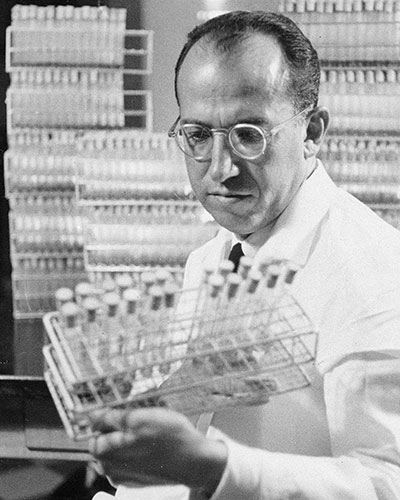
Thursday, June 11, 2020
NBC News: Polio Vaccine Could Give Temporary Protection Against COVID-19, Scientists Hope
NBC News: As the world waits for a coronavirus vaccine, some scientists are proposing that existing vaccines could give the body’s immune system a much-needed temporary boost to stave off infection. It’s still unclear whether such an approach would work, and some experts are skeptical. Others — including researchers in Israel, the Netherlands and Australia — are already investigating whether a tuberculosis vaccine could help jump-start the immune system and make COVID-19 less deadly, though the World Health Organization strongly advises against using that vaccine until it’s proven effective against the coronavirus.
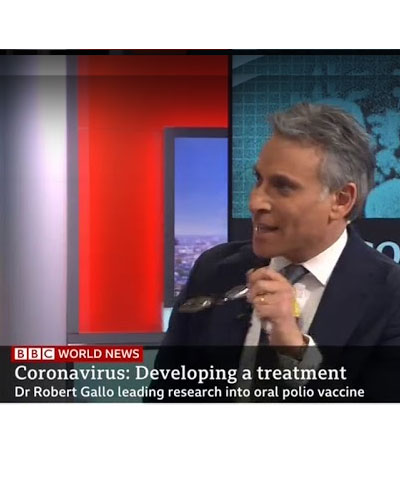
Monday, May 11, 2020
BBC Global News Interviews Dr. Robert Gallo on Oral Polio Vaccine for SARS-CoV-2 and More
Dr. Robert Gallo appeared on BBC World News with Matthew Amroliwala for a one-on-one, lengthy interview during their Coronavirus Explained segment.

Saturday, May 09, 2020
Dr. Robert Gallo Discuss COVID-19 Research on Aljazeera News
Aljazeera discusses the status of therapy, testing and vaccine research on SARS-CoV-2/COVID-19 with Dr. Robert Gallo.
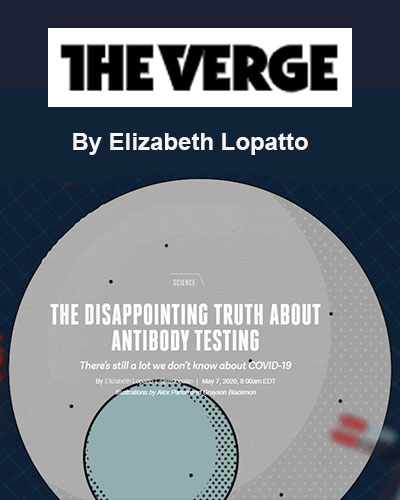
Thursday, May 07, 2020
The Disappointing Truth About Antibody Testing: There’s still a lot we don’t know about COVID-19
Dr. Robert Gallo discusses the status of COVID-19 antibody test with Vox's The Verge
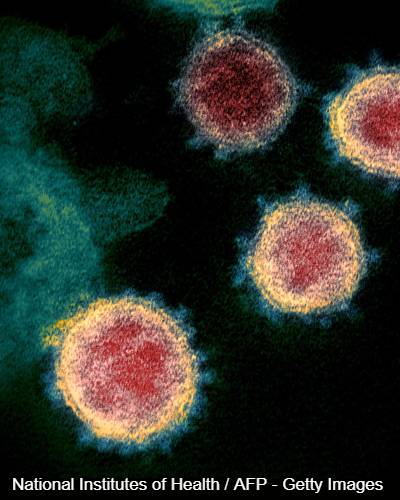
Wednesday, May 06, 2020
The Coronavirus Appears to have Mutated. What Does that Mean for Contagiousness?
While small mutations in the virus's genetic code are evident, it's unclear what these changes mean for people, if anything at all.
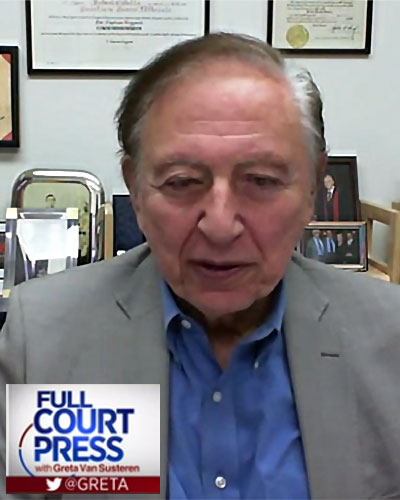
Saturday, May 02, 2020
IHV's Dr. Robert Gallo on FOX's Full Court Press with Greta Van Susteren
Overtime: Dr. Robert Gallo talks coronavirus treatments and antibody testing.

Saturday, May 02, 2020
Dr. Robert Gallo on iHeart Radio to Discuss COVID-19
Ryan Gorman hosts an iHeartRadio nationwide special featuring experts on COVID-19-related issues, including the co-founder and director of the Institute Human Virology at the University of Maryland School of Medicine, the senior vice president for U.S. Programs & Advocacy at Save the Children, and the managing editor of the Military Times. Topics range from a discussion about why some people infected by the coronavirus are asymptomatic, while others face severe reactions and even death, to assistance for impoverished children, and a breakdown of the impact the virus is having on the U.S. military and veterans.
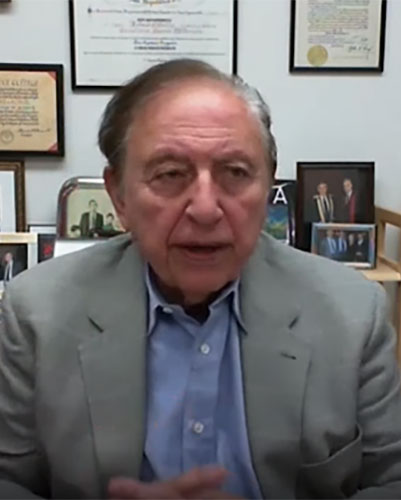
Friday, May 01, 2020
Could an Oral Polio Vaccine Stop the Coronavirus Pandemic?
A YouTube video by the American Chemical Society and produced by PBS.
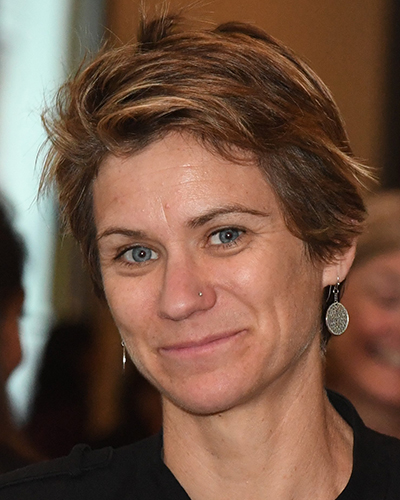
Saturday, April 11, 2020
Institute of Human Virology Honors Legacy of Maeve Kennedy McKean With Global Public Health Fellowship
The Institute of Human Virology (IHV) at the University of Maryland School of Medicine announced today the Maeve Kennedy McKean Global Public Health Fellowship, named in honor of the public health activist, whose inspiring life ended tragically alongside her oldest son last week. The first fellow will arrive on July 1 and will work on the Institute’s efforts in ending the HIV epidemic in Africa within its Center for International Health, Education, and Biosecurity (CIHEB) and Division of Clinical Care and Research.
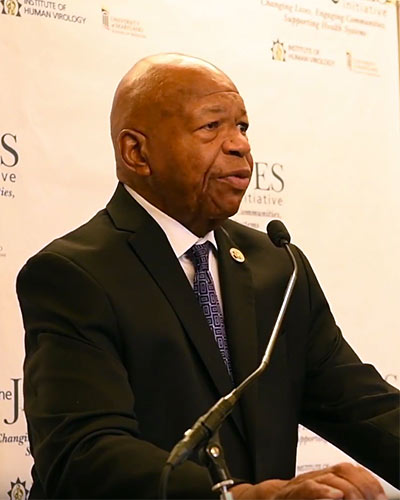
Thursday, October 17, 2019
A Statement from the Leadership of the Institute of Human Virology on the Passing of The Honorable Elijah Cummings
The Institute of Human Virology (IHV) at the University of Maryland School of Medicine mourns the passing of The Honorable Elijah Cummings, a lifelong Baltimorean, a member of the U.S. House of Representatives representing Maryland’s 7th District, and, among other prominent positions, a member of IHV’s Board of Advisors.
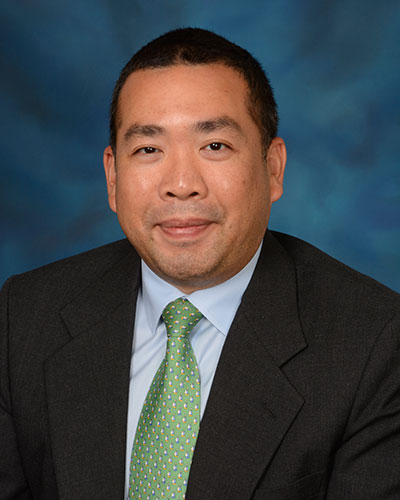
Monday, June 24, 2019
UM School of Medicine's Institute of Human Virology Awarded $40 Million Grant to Conduct HIV Population Surveys
Man Charurat, MD, Professor of Medicine, Director, Center for International Health, Education, and Biosecurity (CIHEB), and Director, Division of Epidemiology and Prevention, Institute of Human Virology (IHV) at the University of Maryland School of Medicine (UMSOM), has been awarded a five-year grant from the U.S. Centers for Disease Control and Prevention (CDC) to conduct HIV population-based HIV impact assessments worldwide to measure the progress towards the control of the HIV epidemic
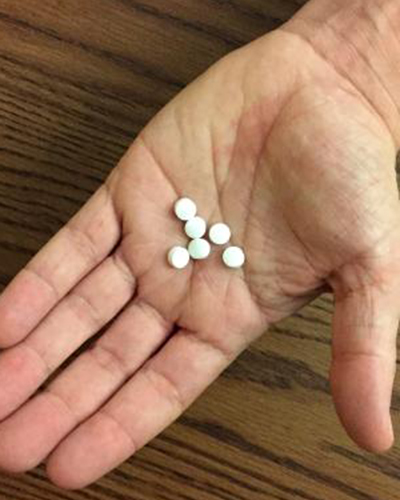
Thursday, March 21, 2019
IHV Experts Researching Experimental Drug to Curb Opioid Cravings
Researchers at the University of Maryland School of Medicine (UMSOM) Institute of Human Virology (IHV) are collaborating with scientists at the National Institutes of Health to test an experimental drug to curb opioid cravings.
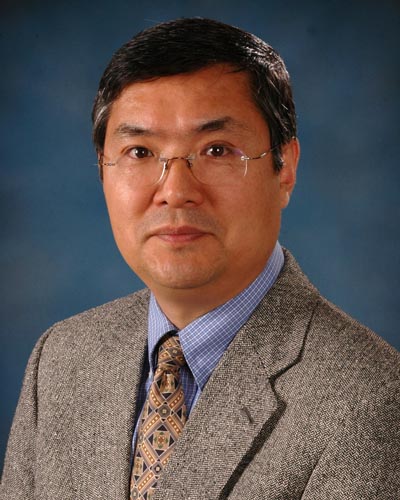
Wednesday, March 06, 2019
UMSOM Researcher Elected as Fellow to American Academy of Microbiology
Richard Y. Zhao, Ph.D., Professor of Pathology and Associate Member of the Institute of Human Virology (IHV) at the University of Maryland School of Medicine (UMSOM), has been elected as a Fellow to the American Academy of Microbiology (AAM). AAM is an honorific leadership group within the American Society for Microbiology (ASM).

Tuesday, December 11, 2018
Institute of Human Virology's Shyam Kottilil to Receive National Award from American College of Physicians
The American College of Physicians announced that Shyam Kottilil, MBBS, PhD, FACP, Professor of Medicine and Director of the Division of Clinical Care and Research at the Institute of Human Virology (IHV) of the University of Maryland School of Medicine (UMSOM) and Chief of the Division of Infectious Diseases, was awarded the American College of Physicians (ACP) Richard and Hinda Rosenthal Award #1 from the Rosenthal Family Foundation.

Monday, December 03, 2018
Institute of Human Virology Names Dr. Man Charurat as Director of the Center for International Health, Education, and Biosecurity
The Institute of Human Virology (IHV) at the University of Maryland School of Medicine today announced the appointment of Man E. Charurat, PhD, MHS, Professor of Medicine and Director of the Division of Epidemiology and Prevention at the IHV as the Director of IHV’s Center for International Health, Education, and Biosecurity (CIHEB). Dr. Charurat will replace Deus Bazira, DrPH, MPH, MBA. The announcement was made by Robert C. Gallo, MD, The Homer & Martha Gudelsky Distinguished Professor in Medicine, Co-Founder and Director of the IHV, and Co-Founder and Director of the Global Virus Network (GVN).

Tuesday, October 23, 2018
Institute of Human Virology Hosts 20th Annual International Meeting of Top Medical Virus Researchers in Baltimore, Maryland
The Institute of Human Virology (IHV) at the University of Maryland School of Medicine yesterday commenced IHV’s 20th Annual International Meeting, to be held through Thursday, October, 25 at the Four Seasons Hotel in Baltimore, Maryland. This year, among other viral and cancer related topics, the meeting is holding special sessions on the 40th anniversary of the first human retrovirus, Human T cell Leukemia Virus (HTLV), and the 15th anniversary of the President’s Emergency Plan for AIDS Relief (PEPFAR). IHV’s Annual International Meeting attracts hundreds of elite scientists who descend upon Baltimore to share ideas and inspire medical virus research collaborations.
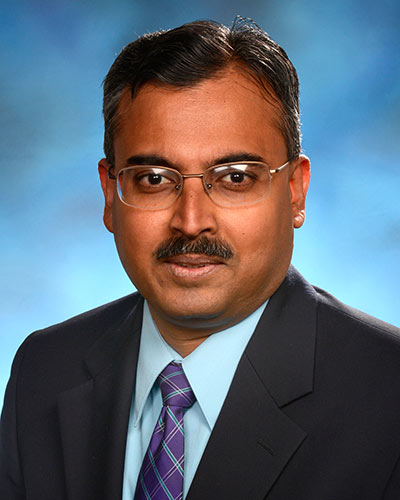
Wednesday, September 19, 2018
Institute of Human Virology (IHV) Awarded $12M to Combat Opioid Epidemic Through Clinical Research Trials
The Institute of Human Virology (IHV) at the University of Maryland School of Medicine will lead a $12 million dollar project to improve the morbidity and mortality of people with opioid use disorder (OUD). Utilizing a novel compound, IHV researches will implement a series of investigations, entitled SEARCH, to evaluate the underlying mechanisms of craving reduction as a strategy to prevent opioid misuse, dependence, and relapse. The grant is awarded through the National Institutes of Health’s (NIH) Helping to End Addiction Long-term (HEAL) Initiative, made possible through groundbreaking funding from the U.S. Congress.
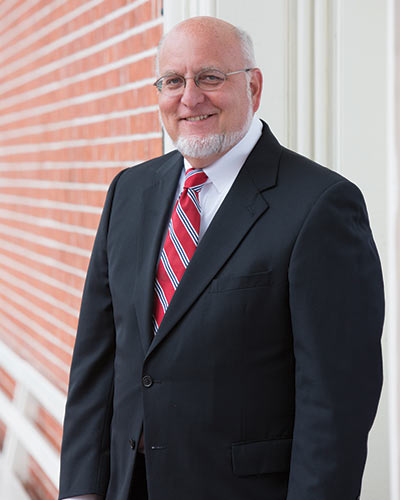
Wednesday, March 21, 2018
Dr. Robert Redfield, Co-Founder of the Institute of Human Virology at the University of Maryland School of Medicine, to Become CDC Director
The Institute of Human Virology (IHV) at the University of Maryland School of Medicine (UMSOM) congratulates its co-founder and associate director, Robert R. Redfield, MD, on his appointment to be the next director of the U.S. Centers for Disease Control and Prevention (CDC).
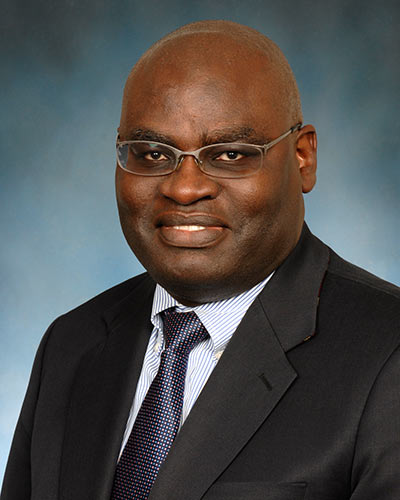
Tuesday, March 20, 2018
UMSOM Cancer Expert at Institute of Human Virology Named Fellow of American Society of Clinical Oncology
Clement A. Adebamowo, BM, ChB, ScD, FWACS, FACS, Associate Director of Population Science at the Marlene and Stewart Greenebaum Comprehensive Cancer Center, University of Maryland School of Medicine (UMSOM), and Professor of Epidemiology and Public Health, Institute of Human Virology, has been named a 2018 Fellow of the American Society of Clinical Oncology (ASCO).
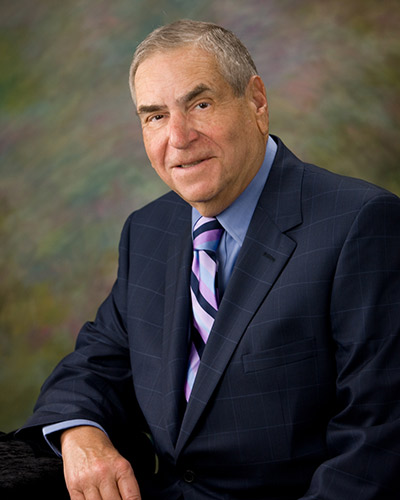
Tuesday, December 12, 2017
A Statement from the Leadership of the Institute of Human Virology on the Passing of Stewart Greenebaum
The Institute of Human Virology (IHV) at the University of Maryland School of Medicine mourns the passing of Stewart Greenebaum, a lifelong Baltimore resident, former president of Greenebaum and Rose Associates, and past chairman of the IHV Board of Advisors, as well as a guiding force in the establishment of the IHV at the University of Maryland, Baltimore.
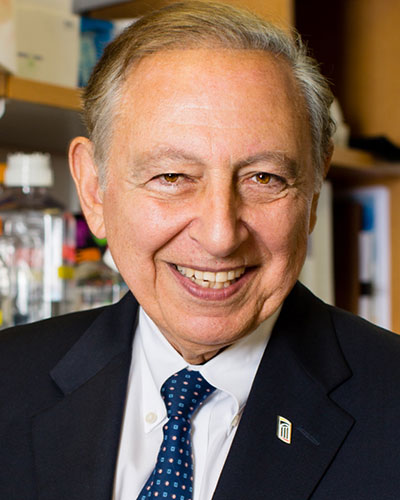
Wednesday, November 29, 2017
To Mark World AIDS Day, Institute of Human Virology Releases Video on Dr. Robert Gallo
The Institute of Human Virology (IHV) at the University of Maryland School of Medicine (UMSOM) released a video on Dr. Robert Gallo, a trailblazer in HIV research, in advance of World AIDS Day, December 1. While many know Dr. Gallo for his pioneering work in AIDS research, the short video focuses on Dr. Gallo’s life and legacy in its entirety, including his pioneering discovery of human retroviruses.
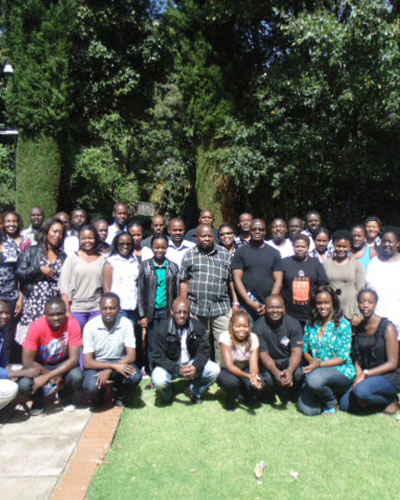
Tuesday, November 22, 2016
IHV Awarded $138M to combat HIV/AIDS in Africa & Launches Center for International Health, Education, & Biosecurity
The Institute of Human Virology (IHV) at the University of Maryland School of Medicine announced today more than $138 million in multiple five-year grants awarded by the Centers for Disease Control and Prevention to combat HIV/AIDS in Kenya, Tanzania, Zambia, and Nigeria. The Institute concurrently announced the formation of the IHV Center for International Health, Education, & Biosecurity (CIHEB), and its newly appointed director, Deus Bazira Mubangizi, DrPH, MBA, MPH, Assistant Professor of Medicine, Director, Center for Health, Education, & Biosecurity, Institute of Human Virology, University of Maryland School of Medicine.

Tuesday, October 25, 2016
"A Call to End HIV/AIDS in America" IHV Director Dr. Robert Gallo's Op-Ed in the Huffington Post
As the new Administration is presented with great challenges facing the United States, one will be a longtime foe, the U.S. HIV/AIDS epidemic. Since President Barack Obama was elected in 2008, I have publicly called on our country’s leaders to utilize the largest global health initiative in history - the President’s Emergency Plan for AIDS Relief (PEPFAR) - as a model to address the U.S. epidemic.
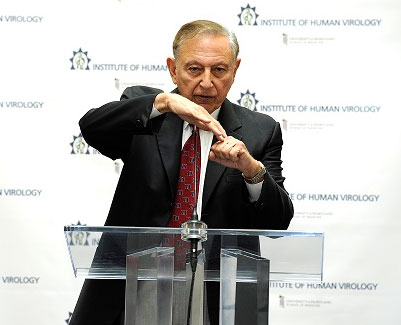
Monday, August 22, 2016
Institute of Human Virology (IHV) Awarded $14.4M for HIV Vaccine Research
The Institute of Human Virology (IHV) announced a $14.4M grant from NIAID to advance HIV vaccine research to solve a major challenge: produce long-lasting antibodies to protect against HIV infection.
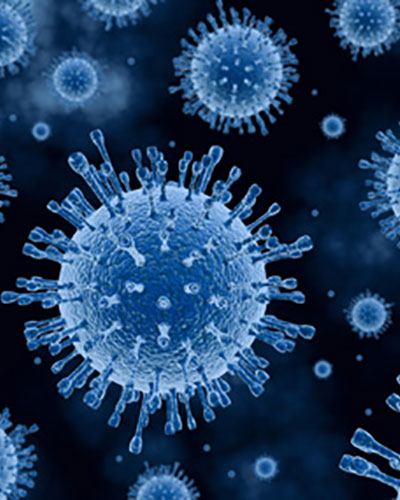
Wednesday, April 13, 2016
IHV Releases Data Supporting Community-Based Treatment Providers in Fight Against Hepatitis C
The Institute of Human Virology (IHV) at the University of Maryland School of Medicine released data today at The International Liver Congress 2016 in Barcelona, Spain demonstrating that treatment for hepatitis C virus (HCV) can be provided safely and effectively within a community-based and non-specialist setting.
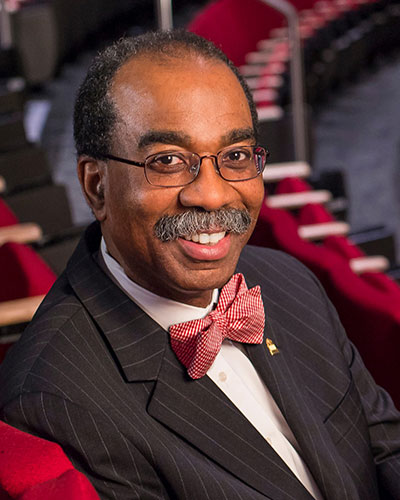
Thursday, March 10, 2016
UM SOM Establishes Two Endowed Professorships Through Private Gifts and Matching State Funds
University of Maryland School of Medicine (UM SOM) Dean E. Albert Reece, MD, PhD, MBA, announced today that the School has been awarded matching funds from the Maryland Department of Business and Economic Development (DBED) as part of the Maryland E-Nnovation Initiative Fund program. The funds, when combined with private philanthropy, will enable UM SOM to establish two new endowed professorships – one in human virology and vaccine development, the other in surgical science and entrepreneurship.
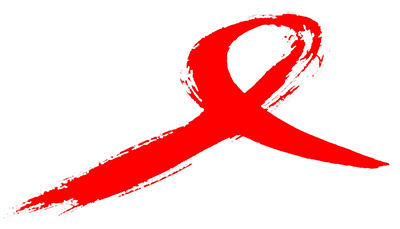
Tuesday, December 01, 2015
A Statement from the Leadership of the Institute of Human Virology on World AIDS Day
Research enabled treatment to be developed for HIV/AIDS, allowing the Institute of Human Virology (IHV) at the University of Maryland School of Medicine (which Dr. Gallo heads and co-founded with his colleagues Drs. William Blattner and Robert Redfield) to develop a promising HIV vaccine candidate, treat nearly 6,000 patients annually in Baltimore, and care for more than 1 million people in Africa and the Caribbean since 2004.
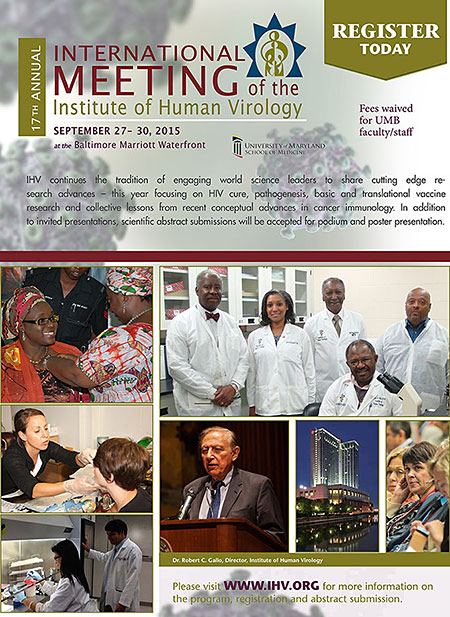
Tuesday, September 29, 2015
Institute of Human Virology Hosts International Meeting of Prominent AIDS Researchers
The Institute of Human Virology (IHV) at the University of Maryland School of Medicine is hosting IHV’s 17th Annual International Meeting Sunday, September 27 through Wednesday, September 30 at the Baltimore Marriott Waterfront Hotel in Baltimore, Maryland.

